Earlier this month we examined photos performance in Battlefield V covering a large range of pics cards at 1080p, 1440p and 4K. We also checked out actual-time ray tracing performance. For the ones exams we used the single participant marketing campaign to measure overall performance because it’s smooth to document correct facts and visually the single and multiplayer quantities of the sport are lots the identical. However, there’s a huge distinction in CPU demand among the two modes, and 64-player multiplayer truly puts the harm on decrease-stop processors.
For trying out CPU performance we're the use of Battlefield V's 64-participant Conquest mode, which creates some of demanding situations for correct checking out, but though we threw ourselves at the task. Fluctuation among runs can be quite big compared to our Battlefield V unmarried player GPU benchmark, which often can provide the equal average frame costs and 1% low effects again and again once more.
Read More :- Revisiting the GeForce GTX 680: GTX 1050 Ti-Class Performance for Less?
- Radeon RX 580 vs. GeForce GTX 1060: 27 Game Battle
- eSports Benchmark: GeForce GT 1030 vs. Radeon RX 550
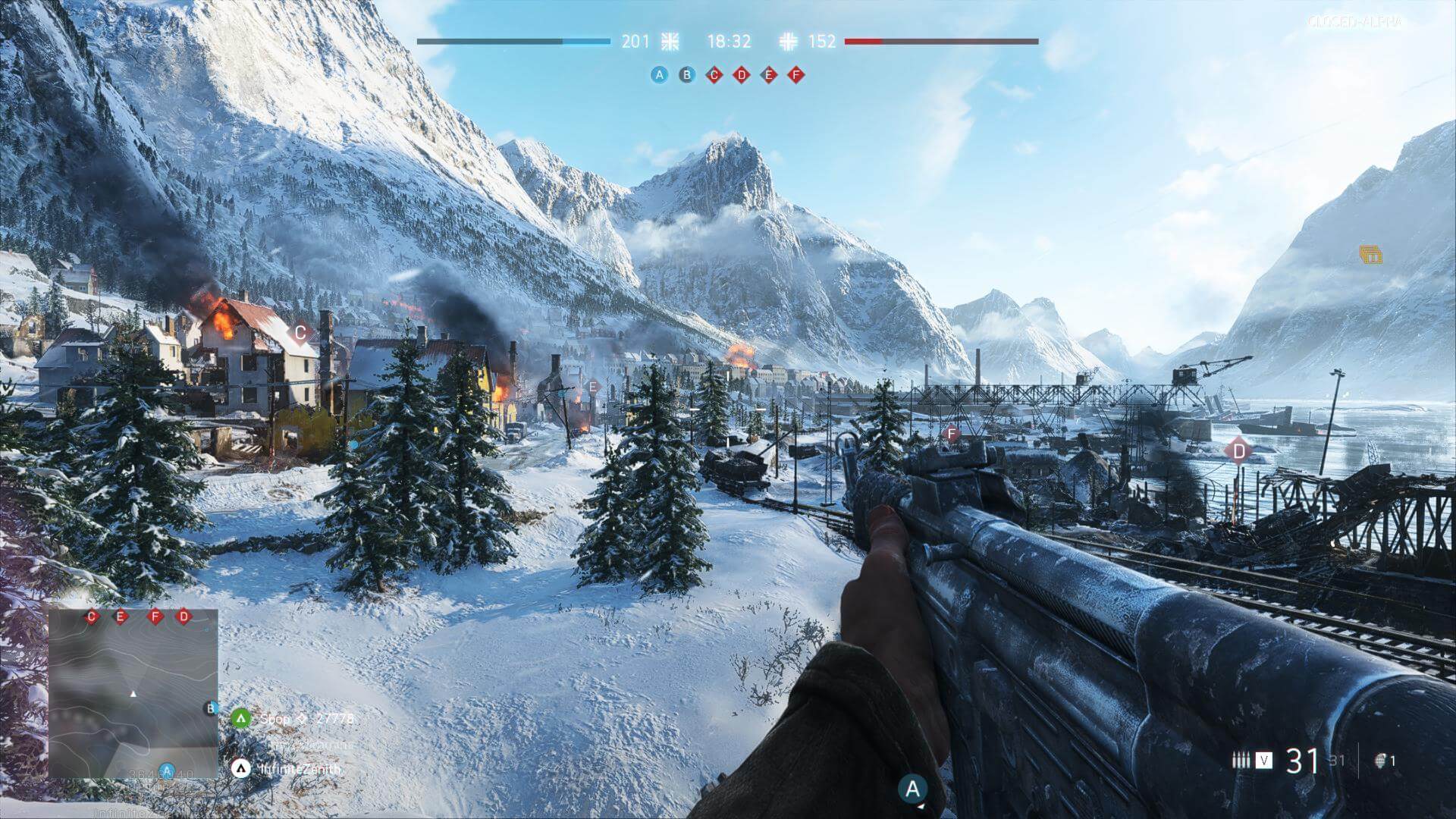
With high-stop hardware a deviation of a range of frames is uncommon, although checking out with multiplayer we had been regularly seeing as much as a ~10 fps difference for the average frame price. We unnoticed excessive outliers and examined many greater times than traditional to try and report the maximum correct performance viable, so outcomes provided on this article are primarily based on a mean of 6 runs, in place of 3.
If you’ve got 30 players close out in front, the body prices might be a good deal lower than if the motion is taking vicinity nicely off inside the distance, so making sure the equal form of stuff was occurring around the participant character for each pass changed into a severe venture and very time eating. For the take a look at we used the Narvik map inside the sixty four-participant Conquest mode for about 60 2nd on every run.
Benchmarks
For the bulk of the benchmarks we we're the usage of DirectX 11 because it presents extra constant frame time overall performance. We realize lots of players are claiming DX12 is fixed and is even higher than DX11, but except you’re the usage of a low-give up CPU DX11 does provide a higher experience. To get that discussion out of the way however, right here are the DX12 numbers for the ones involved. We're now not discussing those consequences in detail as our cognizance will be on the marginally better appearing DX11.
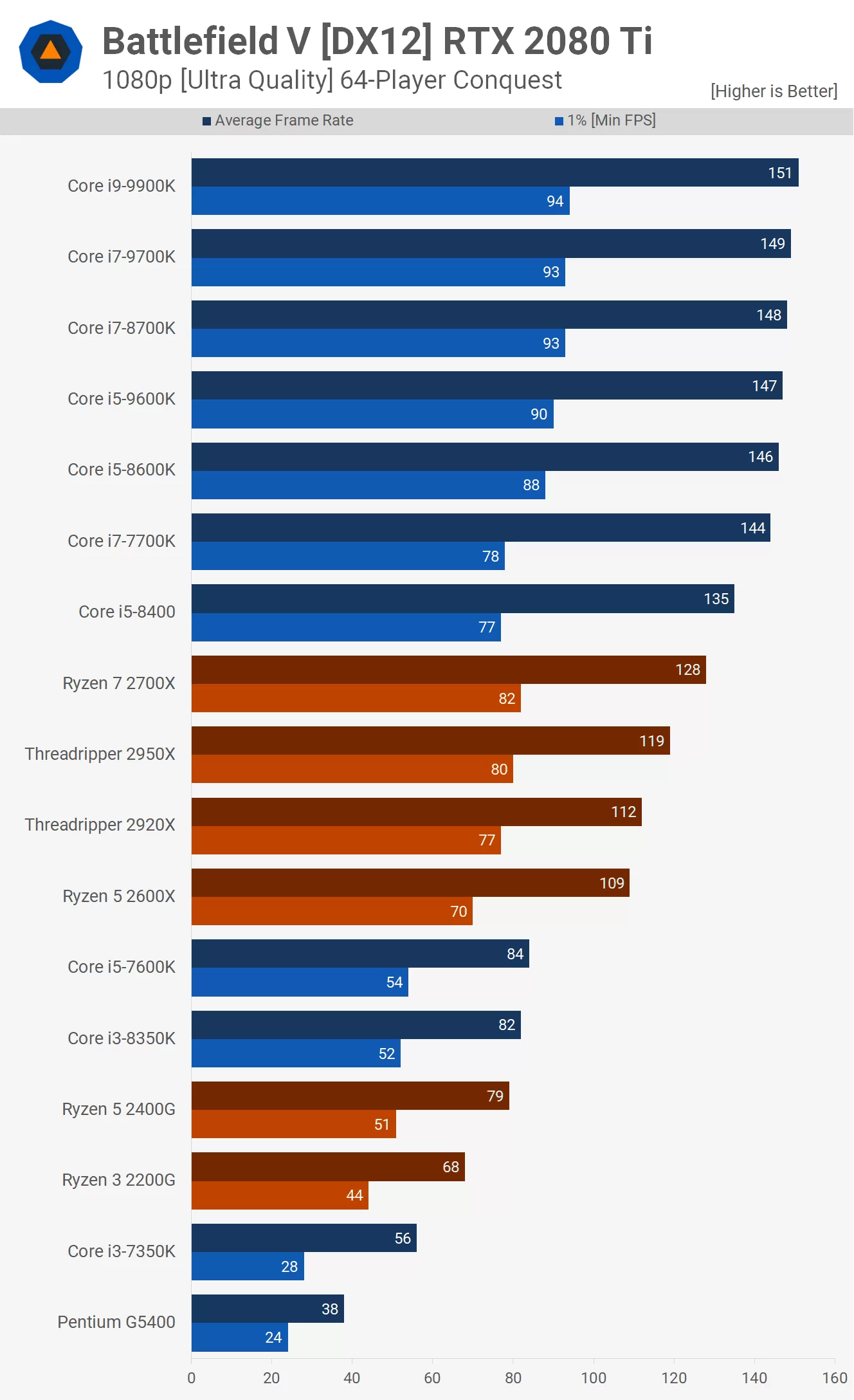
Now, right here are all the CPUs re-tested the usage of the DX11 API and as you can see Ryzen cops a bit of a pounding under those test conditions. The Core i5-8400 is kind of on par with the Ryzen 7 2700X, at the same time as the older 7700K is quicker. Beyond that we see processors including the 8600K, 8700K, 9600K and so on all without problems beating the high-quality AMD has to offer. With nicely over 60 fps on a consistent foundation, Ryzen became capable of provide clean performance regardless, however we’ll pass directly to a few extra favorable trying out a Box second.
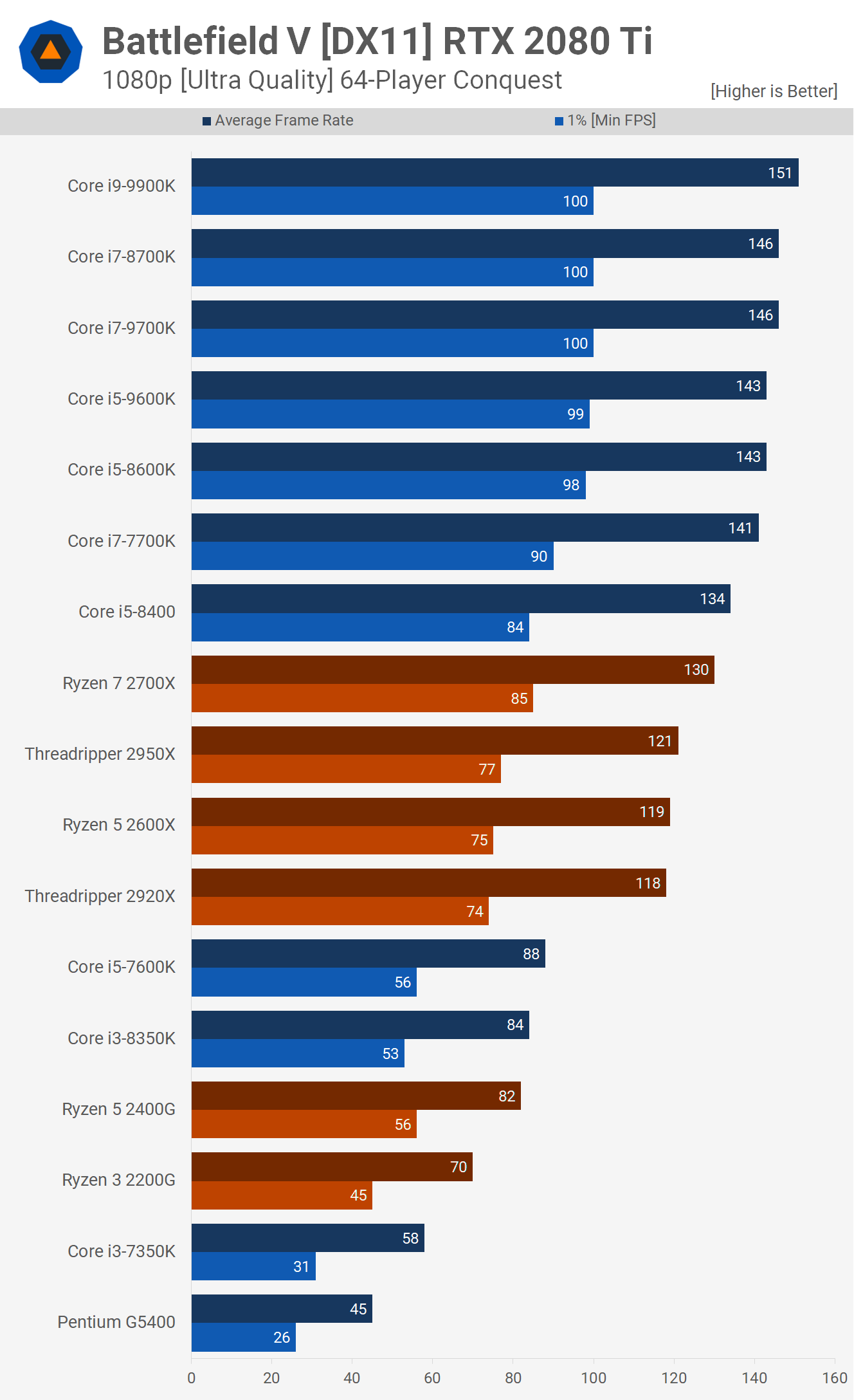
It’s exciting to see the once robust Core i5-7600K suffering here. The Ryzen five 2400G was similar to the 7600K and that’s not some thing we often see, if ever. Then we see the Ryzen 3 2200G conveniently beating the Core i3-7350K and Pentium G5400. Basically some thing twin-middle goes to get destroyed via the 2200G quad-middle, even if they have got Hyper-Threading.
So a decent showing from AMD at the low-cease, but now not fantastic on the excessive-stop. That stated, if you’re now not using an RTX 2080 Ti at 1080p, with ray tracing disabled, what does Ryzen ought to offer?
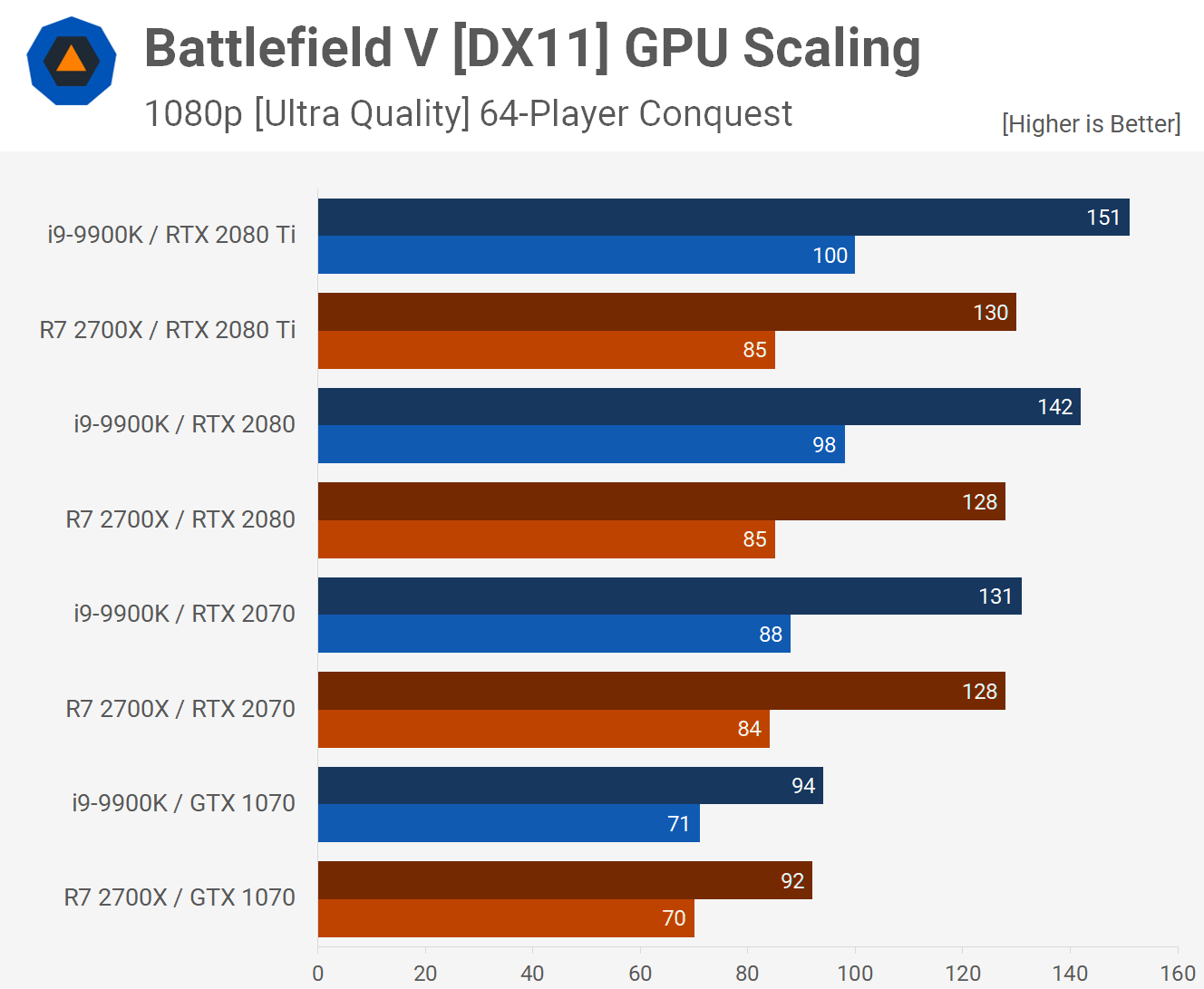
Here is a assessment between the Ryzen 7 2700X and Core i9-9900K. At the pinnacle of the graph we see the previous RTX Ti Review result at 1080p and here the Intel CPU provided a 16% overall performance increase for the common frame price and 18% for the 1% low, so a respectable overall performance advantage provided by way of Intel.
Switching to the RTX 2080 didn’t alternate an awful lot and we're still ordinarily CPU sure at 1080p. Here the 9900K was 11% quicker for the average frame rate and 15% quicker for the frame time end result. So for the ones in search of most overall performance at 1080p the 9900K looks as if the manner to head.
However in case you’re the use of a extra mid-range GPU just like the RTX 2070 then it appears you’ll receive a similar stage of overall performance with either the 2700X or 9900K. Here the Intel CPU was 2% quicker for the average body price and five% quicker for the 1% low that's a negligible difference.
Using any GPU that’s slower than the RTX 2070 will see no distinction among these two CPUs at 1080p the usage of the ultra fine settings and we see that to be the case with the GTX 1070. But what if you want to recreation at 1440p and that decision really seems extra fitting for all 4 GPUs tested right here.
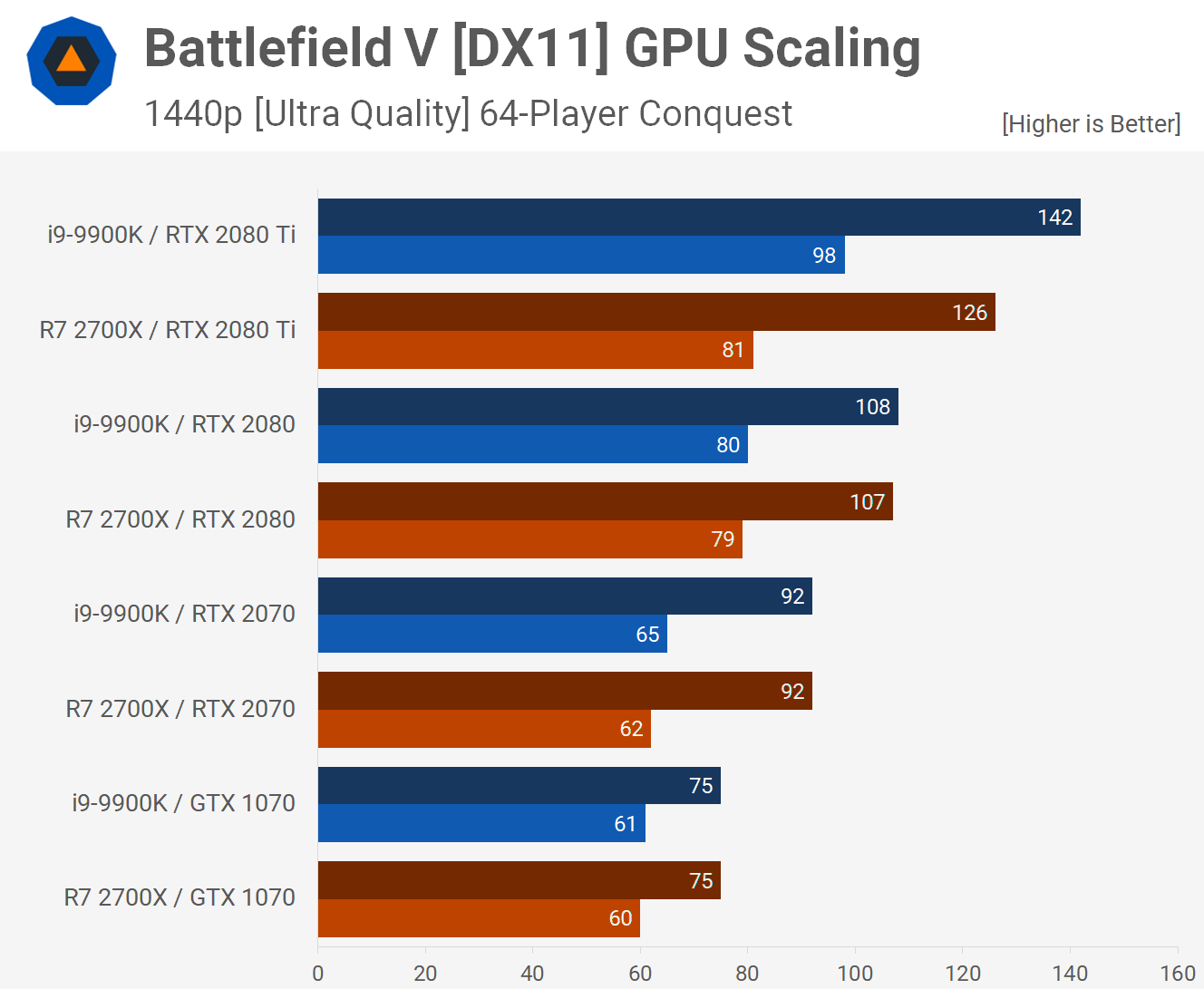
As we end up GPU restrained, at 1440p we see little or no distinction between the 2700X and 9900K using the GTX 1070, RTX 2070 and even the RTX 2080. The 9900K nevertheless provided a advanced gaming enjoy at 1440p whilst the use of the RTX Radeon, here it changed into thirteen% faster on average with a 21% extra frame time end result.
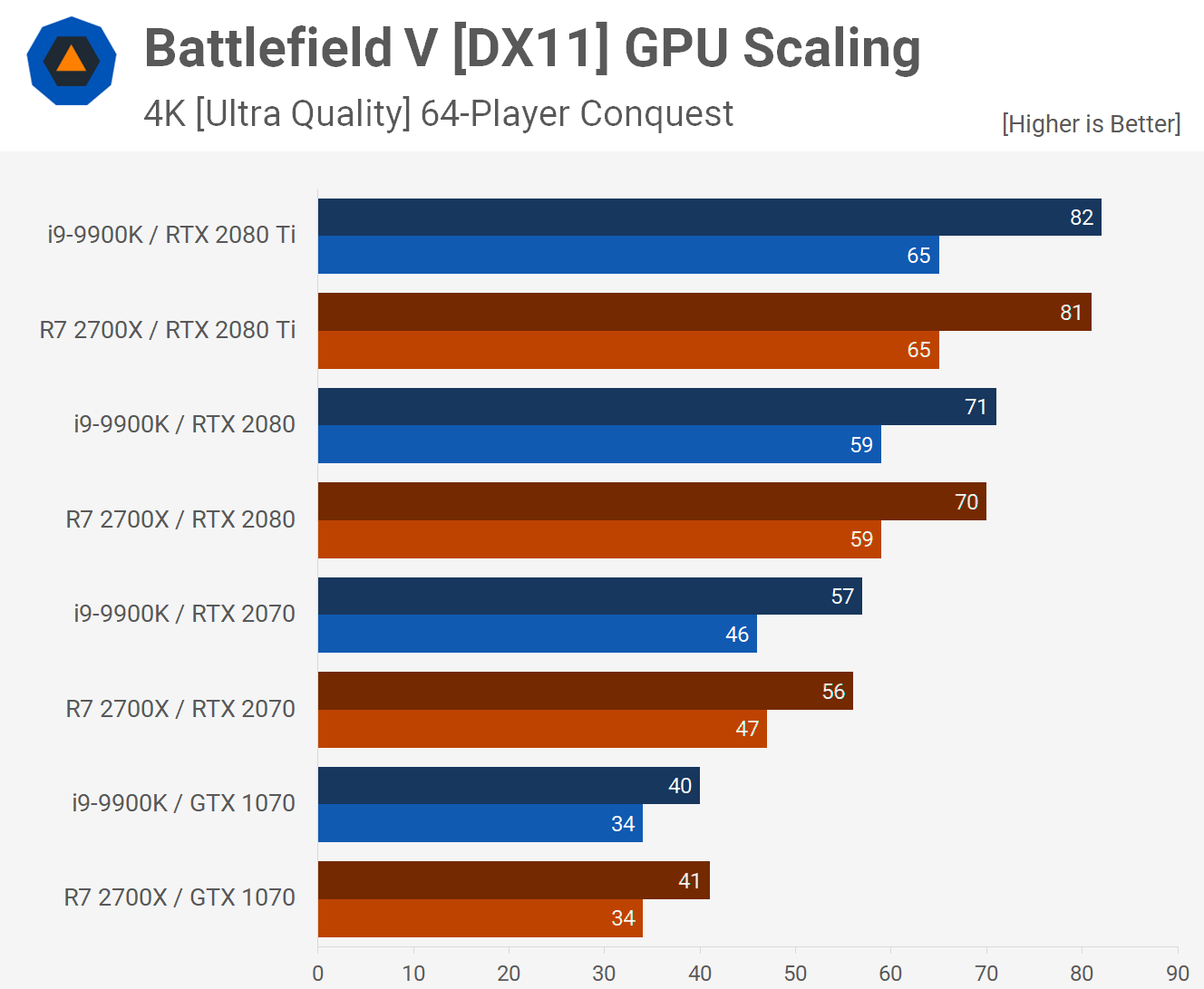
Now assuming you acquire the GeForce for smooth 4K gaming, it seems the selection of CPU would not remember all that a whole lot when evaluating high-give up AMD and Intel chips in this game. Even with the RTX 2080 Ti each CPUs enabled the equal stage of performance, hitting round 80 fps on common with a 1% low of 65 fps.
Closing Remarks
Battlefield V is playable on quad-cores but you can count on common frame dips, ensuing in less regular frame rates. For the most element, we’ve observed that the older Core i5-7600K has been placing in there quite well with AAA titles released in 2018, however for the multiplayer part of Battlefield V you will need to keep away from the large 64-player battles.
This additionally method for easy consistent gameplay the Core i3 variety at the side of the quad-center Ryzen CPUs are a write off. Of route, if you're willing to simply accept everyday stuttering and dips below 60fps then you may still make do with those processors.

If we have been constructing a PC solely to play Battlefield V at the very best possible frame rates with not anything else in thoughts, we’d probable get the Core i5-8600K. However for just $10 more, the Ryzen 7 2700 offers you a better upgrade direction down the line, comes with a cooler and it is a higher fee for typical computing. Using an RTX 2070 or slower the use of the ultra satisfactory settings, you will be GPU certain and it may not genuinely count number which processor you use. Alternatively, if you’re walking on excessive or even medium settings for maximum body rates, then you'll begin to see a larger gain of going with the higher clocked, lower latency Intel CPU.
Overall, we assume Ryzen seems a bit disappointing at 1080p wherein the game is not GPU restrained, though given the clock pace deficit, it's stunning the 2700X is just 15% slower than the 9900K. Keep in thoughts that both AMD and Intel CPUs can be overclocked for greater performance and memory timings may be manually tuned, which is useful on both systems. Generally speakme, AMD does higher with reminiscence tuning, at the same time as Intel gains more from middle overclocking.
Shopping Shortcuts
- Intel Core i9-9900K on Amazon, Newegg
- Intel Core i5-8600K on Amazon, Newegg
- Intel Z390 motherboards on Amazon, Newegg
- AMD Ryzen 7 2700X on Amazon, Newegg
- AMD Ryzen five 2600 on Amazon, Newegg
- AMD X470 motherboards on Amazon
0 Response to "Battlefield V Multiplayer CPU Benchmark: Ryzen 7 2700X vs. Core i9-9900K"
Post a Comment